#Organization of American States (OAS)
Explore tagged Tumblr posts
Text
Now, the CIDH has brought the ESMA exhibit to the Organization of American States (OAS) Headquarters in Washington DC in an attempt to start a conversation about crimes against women during dictatorships across Latin America. The exhibit will be available for visits throughout the whole month of March, dedicated to both the Argentine feminist struggle and the quest for memory, truth, and justice.
“Trophies” and “retraining” — the exhibit
Featuring 28 testimonies from women survivors, the exhibit shows the specificities of women’s experiences within the clandestine centres with testimonies from the trials as well as recent interviews. Banners and texts convey the story that the military coup was part of a “systemic and patriarchal” plan to eradicate women victims through gender-based violence.
Testimonies show how women were generally used as ‘trophies’ by the military, subjected to humiliation and suffered gender-based violence when tortured. This often came in the form of sexual abuse, which sometimes resulted in unwanted pregnancies.
34 women were forced to deliver their babies in violent conditions, often seeing them taken away immediately — some were abducted by the military to be raised as their own, but many were murdered.
The violence was not limited to rape and sexual abuse — several psychological methods were also employed. The military reinforced gender stereotypes on detained women by giving them lessons on wearing makeup and having officers take them on “dates,” among other obligations to “retrain” them as women.
“Gender-based violence existed before the dictatorship, existed during the dictatorship, and continues to exist,” Mantilla Falcón said. “The Argentine case shows how women’s bodies were completely sexualized, how rapes and pregnancies in conflict affected them differently than men.”
When the trials were re-opened in Argentina in 2001, it took a long time for the judiciary to incorporate a perspective on gender in their investigations. The first time a torturer was condemned for rape was in 2010. And, in 2011, Judge Sergio Torres, in charge of the ESMA case, declared that the sexual violence in the clandestine center was “a systemic practice carried out by the State within a plan of repression and annihilation”.
#political prisoners#argentina#violence against women#oas#Organization of American States#washington dc
9 notes
·
View notes
Text
South America: A Strategic Reassessment For The United States
By Chicago Times Magazine – July 20, 2024 The recent rise in Russian and Communist Chinese activity in South America necessitates a reevaluation of U.S. strategy in the region. Historically, South America has served as a stage for external powers to exert influence, a dynamic the Monroe Doctrine, with its inherent complexities, sought to navigate. Today, the challenge lies not in solely…
#BELT AND ROAD#COMMUNIST CHINA#FOREIGN INFLUENCE#OAS#ORGANIZATION OF AMERICAN STATES#RUSSIA#SOUTH AMERICA#UNITED STATES
0 notes
Text

#OAS#Organization of American States#international organization#Washington DC#building#architecture#lights#night view
0 notes
Text
"A recent court ruling from the Inter-American Court of Human Rights marks the first time an international judicial body has decided that indigenous peoples living in “voluntary isolation” have a right to do so, and that governments must act to ensure that right.
The ruling comes off the back of 20 years of activism challenging the Ecuadorian government’s encroachment on indigenous lands for oil drilling, and this, as well as other extractive activities like logging, were ruled to be intolerably disruptive to three groups living in voluntary isolation in the Ecuadorian Amazon.
International treaties protecting the rights of indigenous peoples have long been ratified at both the UN and the Organization of American States (OAS), but a case specifically determining whether a group living in voluntary isolation, which used to be called “uncontacted,” were guaranteed protection to allow them to continue doing so has never been ruled on.
While the United Nations Human Rights Council in 2009 and the Inter-American Commission on Human Rights in 2013 introduced guidelines and recommendations that included a right to choose self-isolation, neither were put into writing under international law, nor included in any treaty amendments.
As such, the Costa Rica-based court’s decision that nation-states, in this case Ecuador, must follow a “precautionary principle” when making decisions about future oil operations that may impede a group’s ability to live in self-isolation.
“This principle means that, even in the absence of scientific certainty regarding oil exploration and exploitation projects’ impacts on this territory, effective measures must be adopted to prevent serious or irreversible damage, which in this case would be the contact of these isolated populations,” said the court opinion, written in Spanish, and translated by Inside Climate News.
The three groups in question are the Tagaeri, Taromenane, and Dugakaeri, who are part of the overall Waorani peoples since they share cultural traditions and language.
Testimony was heard from a community leader of the Waorani, Penti Baihua, and two young women who at the ages of 2 and 6 were survivors of violent encroachment by oil workers who killed members of the girls’ group, forcibly introduced them to modernity, and displaced them to different parts of the Amazon.
In the current case, the court ruled that a protected area the size of Delaware that was established in the early 2000s to guarantee indigenous Waorani (and others) rights was created in such a way as to leave oil exploration areas outside protection, despite being the ancestral home of Baihua and his people.
A 6-mile deep buffer zone surrounding the heart of the Tagaeri, Taromenane, and Dugakaeri’s territory called the “Intangible Zone,” has been repeatedly penetrated by extractive industries, which have built roads and other “colonial” infrastructure.
The court ruled that Ecuador must honor the results of a 2023 referendum, in which voters chose to stop oil operations in that region indefinitely.
The court used the term “living in voluntary isolation” to reflect that fact that there are no unconctacted tribes on Earth, but perhaps as many as 200 who have seen evidence of modernity, and received minimal contact—perhaps from a related tribe that doesn’t live in isolation—and chose to remain without any interaction with the modern world either out of fear or self-interest."
-via March 28, 2025
#indigenous#ecuador#south america#waorani#voluntary isolation#indigenous rights#indigenous people#environmental justice#oil#oil drilling#colonialism#amazon#amazon rainforest#amazonian peoples#good news#hope
2K notes
·
View notes
Text




June 30, 2025: King Felipe held bilateral meetings with Albert Ramdin, Secretary General of the Organization of American States (OAS) and the President of Senegal, Bassirou Diomaye Faye
#King Felipe#King Felipe of Spain#King Felipe VI#King Felipe VI of Spain#Official Event#June 2025#20250630
7 notes
·
View notes
Text
Brazil, Colombia to launch program for quilombola communities

Afro-descendant communities in Brazil and Colombia are set to benefit from a new bilateral program aimed at protecting their lands, conserving biodiversity, and promoting traditional agricultural practices. This initiative will be unveiled this week in Cali, Colombia, during COP-16, the United Nations Biodiversity Conference, running from October 21 to November 1.
“We are presenting a joint proposal from Brazil and Colombia at COP16, aimed at recognizing Afro-descendant peoples in the implementation of the Convention on Biological Diversity,” announced Paula Balduíno, director of Policies for Quilombolas and Romani at Brazil's Ministry of Racial Equality, during a session of the Permanent Council of the Organization of American States (OAS) last week.
The program, named "Quilombo of the Americas," to be launched by the governments of Brazil and Colombia, aims to strengthen the identity, memory, and resistance of Afro-descendant communities. It seeks to create a platform for cooperation and articulation, promoting the recognition of their rights, cultural preservation, and advancing social and racial justice, according to Brazil's Ministry of Racial Equality.
Continue reading.
#brazil#brazilian politics#politics#colombia#colombian politics#environmental justice#antiracism#quilombos#image description in alt#mod nise da silveira
10 notes
·
View notes
Text
Recent events only reinforce my position: no Latin American country —nor any country with a colonial past— should accept clauses that grant jurisdiction to foreign courts.
No foreign tribunal should have the power to condemn a sovereign state for its internal decisions.
Only multilateral organizations like the UN or the OAS should be recognized —and even then, only in matters of human rights. And even there, double standards are rampant.
Only plurinational courts, with equitable participation, should have the power to condemn a sovereign state.
These judicial clauses are just another form of neocolonialism.
2 notes
·
View notes
Text
“After deep consideration, we have decided not to engage in-person in this year’s Commission on the Status of Women or any other UN, OAS (Organization of American States) or global convergings, including WorldPride, taking place in the United States in the foreseeable future,” the statement says. “This decision is foremost based on the need to safeguard our trans and nonbinary staff who would face questionable treatment at land and aviation borders to attend such convenings, and to stand in solidarity with global colleagues who are experiencing similar fear around entry to the U.S.,” the statement continues. “It is also founded in the unique situation that has been thrust on Canadians (and citizens of other countries) regarding economic warfare and threats to our national sovereignty,” according to the statement. “We cannot in good conscience engage in a process of disentangling our organization from the U.S. goods and services (as we have recently released in a statement) and then proceed to travel to the U.S.”
3 notes
·
View notes
Text










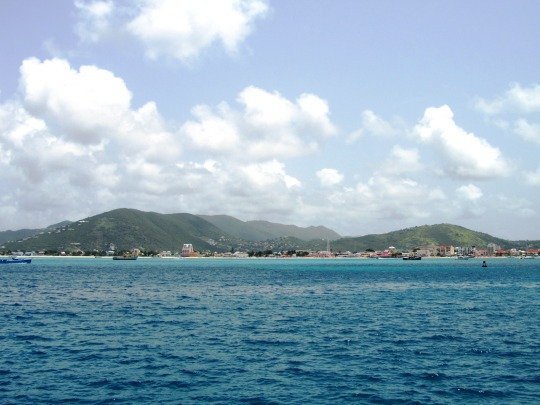

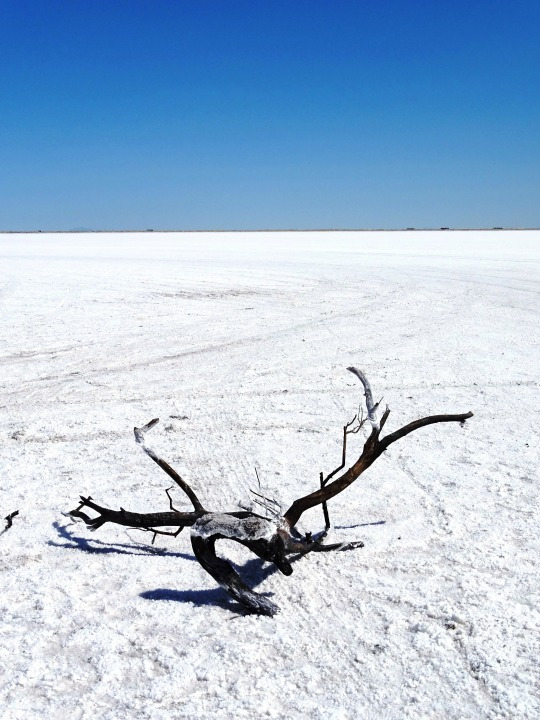



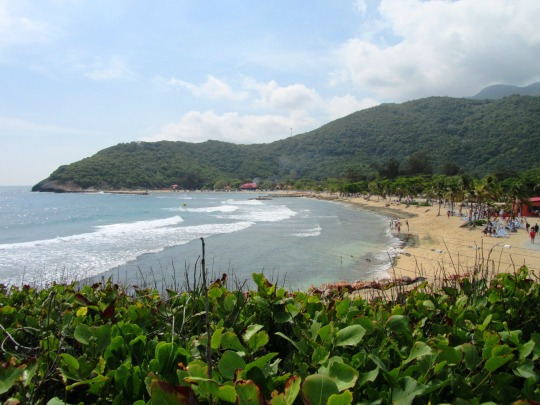

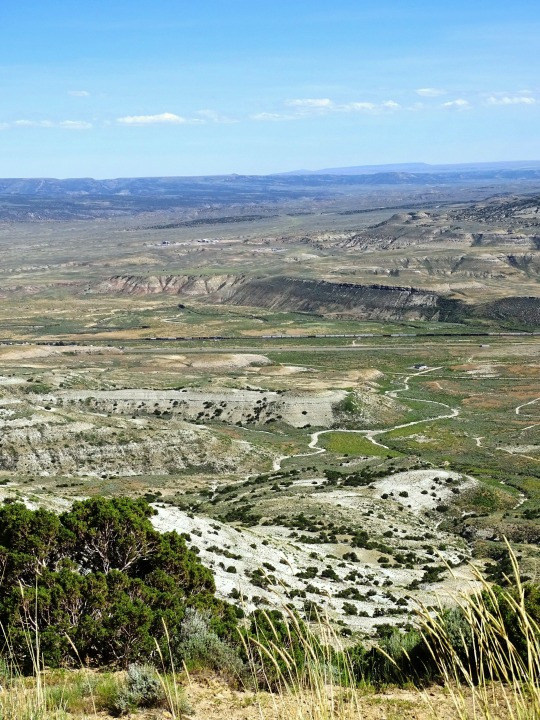





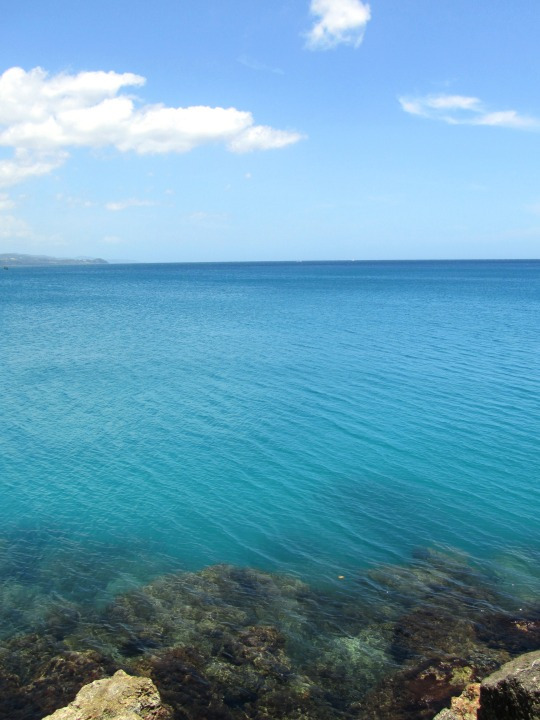





Pan American Day
Pan American Day is celebrated on April 14 each year. This is a day for us to remember the first International Conference of American States, which took place in Washington and resulted in the formation of the Organization of American States (O.A.S.) in 1948. The O.A.S. is the oldest regional organization of its kind in the world. Pan American Day celebrates the coming together of the Americas — the northern and southern American states. It also celebrates the various cultures and diverse traditions of the region. The day also reminds us to strive for better opportunities for all the states.
History of Pan American Day
The idea of an international union of the Americas was first brought up at the 1826 Congress of Panama by José de San Martín and Simón Bolívar. The aim was to create an alliance of American nations. At the time, however, it was decided that national interests were more important than the union of the various countries.
However, on April 14, 1890, the idea of having international solidarity among the Americas was reignited at the First International Conference of American States. This conference took place in Washington, D.C. with 18 member nations who decided to join the assembly. This was the beginning of the Organization of American States (O.A.S.). This organization was served by a permanent secretariat called the Commercial Bureau of the American Republics.
In the 1930s, U.S. President Franklin Delano Roosevelt organized an inter-American conference in Buenos Aires to talk about the need for a ‘League of Nations of the Americas.’ The members of this league would stay neutral in the event of any conflict. Members also adopted a system of collective security in response to the demands of the post-war situation. The Inter-American Treaty of Reciprocal Assistance (Rio Treaty) was signed in 1947 in Rio de Janeiro.
Finally, after many subsequent conferences, April 1948 saw the birth of the O.A.S. with signatures from 21 American member countries. This particular conference in 1948 also approved and adopted the American Declaration of the Rights and Duties of Man, which became the first human rights document in the world.
Pan American Day timeline
1826
The Idea of Pan America is Born
José de San Martín and Simón Bolívar introduce the idea of an international union of the Americas at the Congress of Panama.
April 14, 1890
The Beginnings of O.A.S.
The First International Conference of American States is held in Washington, D.C.
1930s
The Need for a League is Proposed
U.S. President Franklin Delano Roosevelt organizes a conference to propose a ‘League of Nations of the Americas.’
April 1948
Birth of the OAS
The Organization of American States is established with signatures from 21 American member countries.
Pan American Day FAQs
Why do we celebrate Pan American Day?
Pan American Day is a day to celebrate the alliances we have with other countries in North and South America. It is an opportunity to be thankful for the many opportunities that we have.
Why is Pan American Day important in Belize?
In Belize, Pan American Day is also a day of celebrating the arrival of various cultural groups from the Yucatan. It was originally known as Columbus Day.
What do people do on Pan American Day?
Parades and shows are held on Pan American Day. People also set up exhibits.
How to Observe Pan American Day
Plan a vacation: There is no better way to celebrate this day than to go and visit other American states. Explore the variety of cultures that the Americas have to offer.
Increase your knowledge: If you are a reader, find the nearest bookstore and read up about the different historical periods and cultures of the Americas. You can also listen to podcasts or audiobooks.
Take a quiz: Find a fun quiz to take with your friends or family. Make sure it is about North and South America.
5 Interesting Facts About The Organization Of American States (O.A.S.)
The O.A.S. helps strengthen democracyThe organization oversees free and fair elections in its member states.
The O.A.S. strives for peaceThe organization has initiated peace-keeping missions in places like Haiti and Guatemala.
The O.A.S. defends human rightsThe O.A.S. monitors and generates reports on the human rights situations in member states.
The O.A.S. fosters free tradeIt supports intracontinental free trade from Alaska to Tierra del Fuego.
The O.A.S. stands for sustainable developmentIt promotes sustainable development to fight poverty and climate change.
Why Pan American Day is Important
It’s a chance to revisit the past: This day reminds us to go back in time and look at how this union came to be. It is necessary to remember the many contributions that this union has made to life as we know it in America.
It’s a reminder to have an attitude of gratitude: This day helps us to be grateful for having allies. We should also be grateful for the many diplomatic and political advantages of this union.
It celebrates diversity: Pan American Day celebrates various cultures and people from the Americas. It makes us appreciate the rich heritage and history of the many generations before us.
Source
#Banff National Park#Yellowstone National Park#British Columbia#Alberta#Ontario#USA#Jamaica#Haitii#Caribbean Sea#Pacific Ocean#Atlantic Ocean#Sint Maarten#the Bahamas#Mexico#Gulf of Mexico#Arches National Park#Jasper National Park#Yosemite National Park#Acadia National Park#Grand Canyon National Park#Rocky Mountains#Monument Valley#Pan American Day#14 April
6 notes
·
View notes
Text
4 notes
·
View notes
Text
The Real Life Handmaid's Tale of Pinochet's Chile
Nieves Ayress Moreno, a MIRista militant after being severely tortured at Villa Grimaldi, was transferred to a prison run by Catholic Nuns. She had become pregnant from repeated rapes by Junta guards. "Dr. Mery, a military doctor who practiced at the Catholic University, and who told me that I should be proud to have a "son of the fatherland." Despite her health being in danger, her only hope of an abortion, under Chile's ultra-strict "pro-life laws" was to appeal to the Pope himself. A revolutionary feminist woman, in a prison run by Catholic nuns, forced to give birth. It is a nightmare out of Margaret Atwood's The Handmaid's Tale come to life.

STATEMENT OF LUZ DE LAS NIEVES AYRESS MORENO
In New York, State of New York, United States of America, on ____ days of the month of August of the year two thousand, Mrs. Luz de las
Nieves Ayress Moreno (born in Chile under the name Luz de las Nieves Ayress Moreno, Chilean citizen, legal profession, domiciled in New York, New York, USA, passport No. 6.347.871-7) of legal age, who demonstrated her identity with your passport, and states:
I make this statement to be presented as evidence in the cases pending against General Augusto Pinochet and his subordinates in Chile. I make this statement under oath and with full knowledge of the crime of perjury.
The facts are the following: I was born in Santiago, Chile on October 5, 1948. I joined the Bolivian National Liberation Army, an arm of the Socialist Party in Chile, in 1968, and in 1973 I was still a militant and ELN activist, working with women and children in the towns. I was also an art and journalism student at the University of Chile. After 1973, I was a member of the Movement of the Revolutionary Left of Chile (MIR).
A few weeks after the coup, I was at the house of the mother of a friend of mine who was in prison, when, around 10 pm, a group of police officers arrived and arrested me. They handcuffed me and took me first to the Carabineros NCO School, and, after two or three days, to the National Stadium. (At the stadium, the carabinieri would tell me that my friend's mother had named me in the hope of saving her own daughter.) At the NCO School, they beat me and slapped me. They also touched my body, threatened me with sexual advances, and insulted me. The prisoners were kept in some cells that were in the back of the School, in the stables.
In March 1974 I was transferred to the Women's Prison on Vicuña Mackenna Street, in Santiago, which was under the administration of an order of jailer nuns. Here I was in free conversation, and I stayed in a patio with the other political prisoners; they kept political prisoners apart.
In April I found out that I was pregnant, and this was confirmed by Dr. Mery, a military doctor who practiced at the Catholic University, and who told me that I should be proud to have a "son of the country." My pregnancy caused great controversy. By now my case was internationally known, due to the efforts of my mother and family to denounce what was happening to me, and also because a woman who was imprisoned with me in the Vicuña Mackenna women's prison had managed to get a my statement I was interviewed by the International Red Cross, the Kennedy Commission, Amnesty International, the International Commission on Human Rights of the Organization of American States (OAS), the United Nations High Commissioner, by Bishop Aristía of Santiago, a Dr. Phillippe , and by Cardinal Raul Silva Henríquez, who came to see his niece, who was also in prison. A group of military wives came to visit me, and they promised me my freedom if I didn't make any more statements about my pregnancy and my torture, and they threatened to take away my son once he was born.
The nuns offered to help me request permission for an abortion. I was not a religious, but because I was in a prison run by religious, I had to submit a request to the cardinal, and from the cardinal to the Pope. In Chile, abortion is punishable by law for five years and one day. I was physically very ill, and if I had a clandestine abortion in prison I could die, and for this reason I decided to have the child. After having survived months of torture and detention, I was not going to give the military the pleasure of killing me. However, in April or May, I started having a lot of pain in my belly, and losing blood clots. I miscarried spontaneously. I received no medical care during the pregnancy or miscarriage.
I never had a legal process. General Bonilla, who took an interest in my case, sent an officer to interview me in jail about my pregnancy and the sexual abuse and other torture I had suffered. In this interview, the officer told me that at one point there were three different lawsuits against me, but that the lawsuits were so contradictory to each other that the military courts declared themselves incompetent in my case. Later there was an order to transfer me to the Pisagua concentration camp, with the penalty of firing squad, but General Bonilla blocked it; he did not agree with the treatment of male and female prisoners. However, I was sentenced to imprisonment "by virtue of the state of siege."
Two dams, M .D. and María Emilia Tijaux, were with me in the women's prison, and they are witnesses of the weak state in which I found myself. Eventually my case got too complicated because of all the controversy it was causing, and since I had no official conviction from the court, in March of 1975 I was transferred to Tres Alamos.
In Tres Alamos, where I remained until December 1976, I was again subjected to rape, threats, insults, and other psychological torture. Comandante Pacheco, who was in charge of Tres Alamos, constantly abused me, subjecting me to sexual harassment for almost two years. He liked to walk around the concentration camp with me next to him. I was very weak, and I fainted frequently. I stayed in a cell with eight other companions. Another prisoner, Marcia Scantlebury, was also badly abused by Comandante Pacheco.
In the spring, I don't remember what month, they transferred us prisoners from Tres Alamos for a month to Pirque, in the mountains, because a group from the UN Human Rights Commission was coming to Chile, and they wanted to avoid a visit to Tres Alamos. It was to give a good image before the UN delegation. I was very depressed, and I felt anxious. He ate and cried a lot. The beauty of the place somehow broke me psychologically.
After a month they took us back to Tres Alamos. We continue to organize ourselves to do craft work to sell abroad. Three babies were born, and we all took care of them. My mother and my aunts would visit me in Tres Alamos. At this time my mother was making arrangements for me to go to Germany.
In December, I was expelled from Chile by the dictatorship with 17 compañeros and compañeras. The dictatorship published a special decree to expel us, leaving us with no right of return. On this list were Gladys Díaz, Víctor Toro, Luis Corbalán, and 15 other colleagues. Many international organizations, such as the Red Cross, the United Nations High Commissioner, and "CIME", UN HIGH COMMISSIONER and the solidarity of the peoples of the world, helped to get me out. In Berlin I had acquaintances, and I stayed with Nuria Nuñez, and also with Gilde Botay. During this time I was dedicated to publicly denouncing what was happening in Chile, and I traveled a lot.
29 notes
·
View notes
Text
What are our thoughts on the OAS (Organization of American States) flag
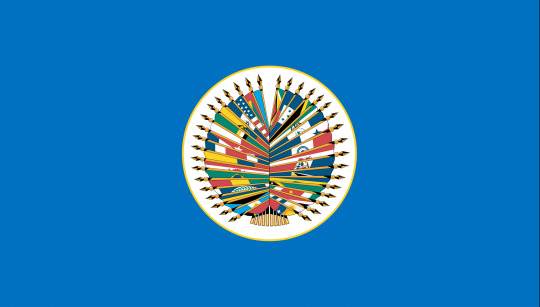
6 notes
·
View notes
Text
Organization of American States (OAS): An Overview
The Organization of American States (OAS) is a regional intergovernmental organization that brings together the countries of the Americas to foster democracy, security, and economic development among its member states. Established in 1948, the OAS serves as a platform for countries in North, Central, and South America, as well as the Caribbean, to work collaboratively on various issues affecting…
0 notes
Text
USA question reason for being from the OAS and considering leaving
Undersecretary of State of the United States, Christopher Landau, questioned on Thursday (26) the reason for being from the organization of American states (OAS), suggesting that his existence loses meaning if it is “unable” to effectively approach crises in Venezuela and Haiti. “If we are unable to respond or remedy a situation in which a regime openly ignores international norms and threatens…
0 notes
Text
Brazil condemned for disappearance of 11 youths in 1990 Acari Case

The Inter-American Court of Human Rights (IACHR) has condemned Brazil for the forced disappearance of 11 young residents of the Acari favela in Rio de Janeiro's northern zone in 1990. The case led to the formation of the activist group Mães de Acari (Acari´s Mothers). The ruling was announced on Wednesday (Dec. 4) in San José, Costa Rica, where the IACHR is headquartered.
IACHR is an autonomous judicial body of the Organization of American States (OAS) responsible for applying and interpreting the American Convention on Human Rights, also known as the Pact of San José de Costa Rica. This international treaty safeguards fundamental rights and freedoms. Brazil is among the 20 countries that recognize the court's jurisdiction.
The case leading to the condemnation of the Brazilian state involves the disappearance of 11 residents of Acari on July 26, 1990. The victims were last seen at a farm in Magé, a municipality in Rio de Janeiro state.
Continue reading.
#brazil#brazilian politics#politics#police brutality#police#image description in alt#mod nise da silveira
5 notes
·
View notes
Text
A letter demanding data on Cuban medical missions roils the Caribbean
SAN JUAN, Puerto Rico (AP) — An unusual request from the Inter-American Commission on Human Rights about Cuban medical brigades that operate worldwide and provide much needed help has roiled countries in the Caribbean and the Americas. In a letter obtained by The Associated Press, the commission asks members of the Organization of American States, OAS, for details including whether they have an…
0 notes